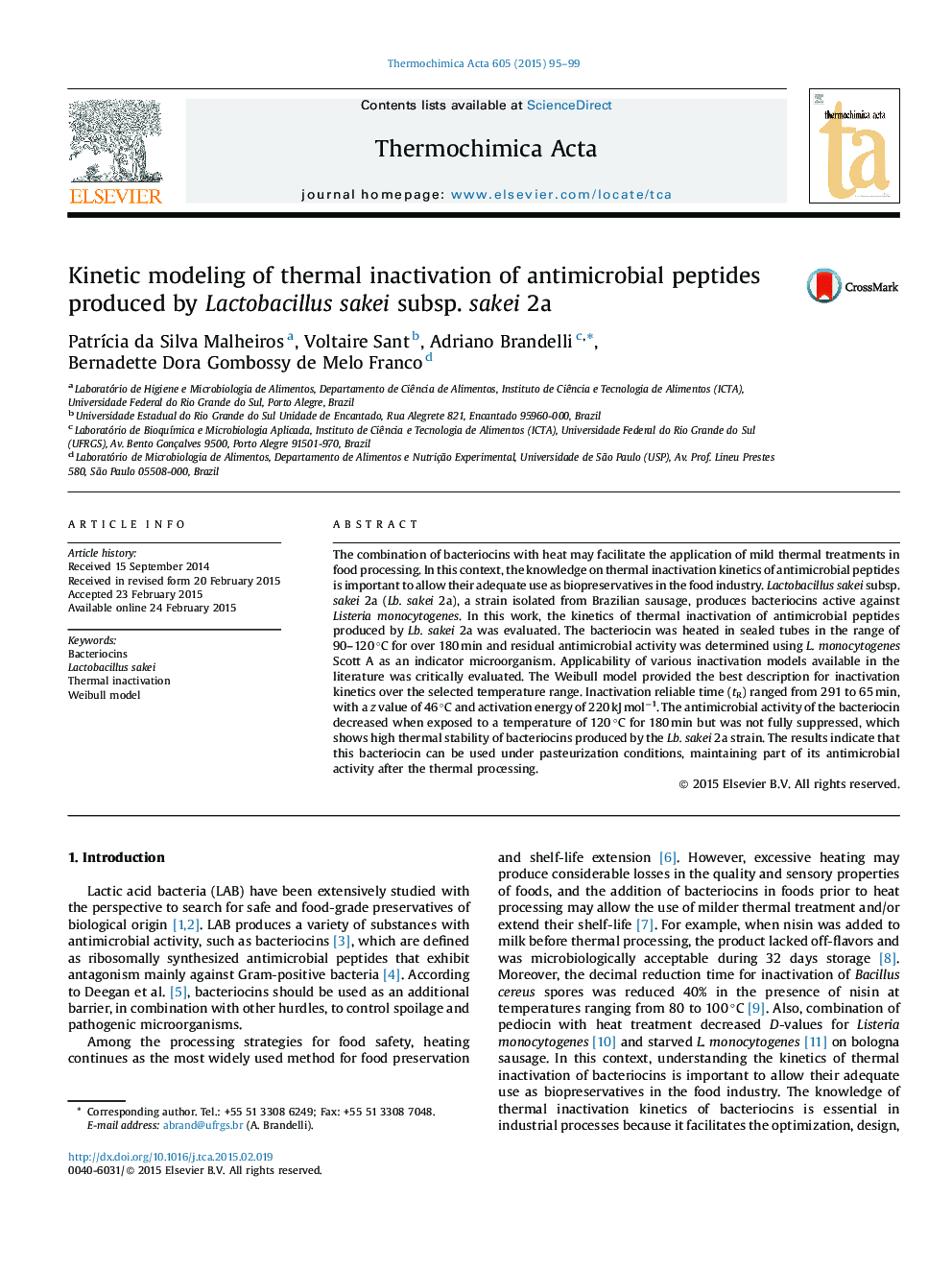| کد مقاله | کد نشریه | سال انتشار | مقاله انگلیسی | نسخه تمام متن |
|---|---|---|---|---|
| 673161 | 1459479 | 2015 | 5 صفحه PDF | دانلود رایگان |

• Thermal inactivation kinetics of bacteriocins produced by Lb. sakei were determined.
• Antimicrobial activity was measured after incubation at 90–120 °C for up to 180 min.
• Weibull model provided the best description for inactivation kinetics.
• Inactivation reliable time (tR) ranged from 292 to 65 min, with a z value of 46 °C.
• This bacteriocin can be used in combination with thermal processing of foods.
The combination of bacteriocins with heat may facilitate the application of mild thermal treatments in food processing. In this context, the knowledge on thermal inactivation kinetics of antimicrobial peptides is important to allow their adequate use as biopreservatives in the food industry. Lactobacillus sakei subsp. sakei 2a (Lb. sakei 2a), a strain isolated from Brazilian sausage, produces bacteriocins active against Listeria monocytogenes. In this work, the kinetics of thermal inactivation of antimicrobial peptides produced by Lb. sakei 2a was evaluated. The bacteriocin was heated in sealed tubes in the range of 90–120 °C for over 180 min and residual antimicrobial activity was determined using L. monocytogenes Scott A as an indicator microorganism. Applicability of various inactivation models available in the literature was critically evaluated. The Weibull model provided the best description for inactivation kinetics over the selected temperature range. Inactivation reliable time (tR) ranged from 291 to 65 min, with a z value of 46 °C and activation energy of 220 kJ mol−1. The antimicrobial activity of the bacteriocin decreased when exposed to a temperature of 120 °C for 180 min but was not fully suppressed, which shows high thermal stability of bacteriocins produced by the Lb. sakei 2a strain. The results indicate that this bacteriocin can be used under pasteurization conditions, maintaining part of its antimicrobial activity after the thermal processing.
Journal: Thermochimica Acta - Volume 605, 10 April 2015, Pages 95–99